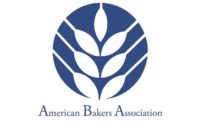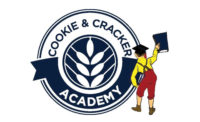In 1986, a major branded cookie and cracker company attempted to capture the expertise of the master bakers who would soon be retiring. The hope was to capture and catalogue the vast baking knowledge they had accumulated over the years with some method of artificial intelligence.
After months of trial, the project was scrapped. One of the main reasons was that the long-time bakers could not completely agree on steps required to troubleshoot specific problems. The science of baking is predictable. However, the variables presented with agricultural commodities are not. Many factors may contribute to similar-acting problems in the finished product. To understand the basics of troubleshooting bakers must understand both the art and the science of baking.
The Biscuit & Cracker Manufacturers Association (B&CMA) recognized this need many years ago, and its members banded together to develop a course to train new cookie and cracker bakers. This two-year course has been extremely successful and has led to further educational offerings. With the merger of the B&CMA with the American Bakers Association (ABA), the Cookie & Cracker Academy (CCA) was established to further enhance the training programs. All programs are available online and are self-paced.
The CCA targets three main needs. The Entry Level Training (ELT) is designed as a basic course in ingredient functionality. The basic ingredients of flour, sugar, shortening, leavenings and water are explored as they affect structure, bulk, sweetening and coloring. The programs include interactive exercises, videos and photos. The student must successfully pass quizzes that periodically test knowledge retention. The administrative function allows continual monitoring of student activity. This course is used by many bakers as a required on-boarding training tool. It is also very useful as a refresher course for seasoned plant employees performing many different activities in the bakery.
The Intermediate Training Program (ITP) is process-specific. These courses are designed for machine operators, maintenance, quality and supervisors. The fundamental operations of wire-cut, rotary, sandwiching, sheeting and laminating are currently available. These courses begin with the mixing process the help the operator better understand the dough being processed. Seasoned bakers can tell a bad dough across the room and know not to run it. Inexperienced operators cause countless losses by attempting to “fix” out-of-spec dough with inappropriate machine adjustments. This causes even more challenges. The course is intended to assist operators in identifying problem areas and better describe them to supervisory personnel.
The mainstay of the CCA remains the comprehensive Cookie & Cracker Manufacturing (CCM) course. The student is allowed two years to complete the course, which is also available online. The student’s knowledge is regularly tested by completing work projects that are reviewed by CCA technical advisors. The student must show understanding of the process under study and be able to write a summary of their findings. A control formula is introduced and changes are made to show the effect on the final product. The student must identify the likely source of the problem and suggest solutions. The course covers all areas of bakery operation.
Successful operations utilize these training programs to eliminate waste and improve efficiencies. One operation was battling bad dough batches—as many as one a day. They addressed the problem in traditional ways with no success. The company then decided to put all employees through the ELT course to help them better understand the process. This bakery reduced bad doughs to one per quarter.
The math is very simple: Reducing even two bad doughs per week at a modest $0.50 per pound equates to an annual savings of $100,000 just in dough costs. That savings is amplified many times by considering the effects down the line to packaging. The test operation now uses all the courses routinely in their operation.
The most-recent advance has been in hands-on training. The ELT has been expanded with work projects added to present in a two-day format, which has been very successful. Not only does it address problem areas, but it has spawned many cost-savings ideas that were immediately applied in the bakery.




